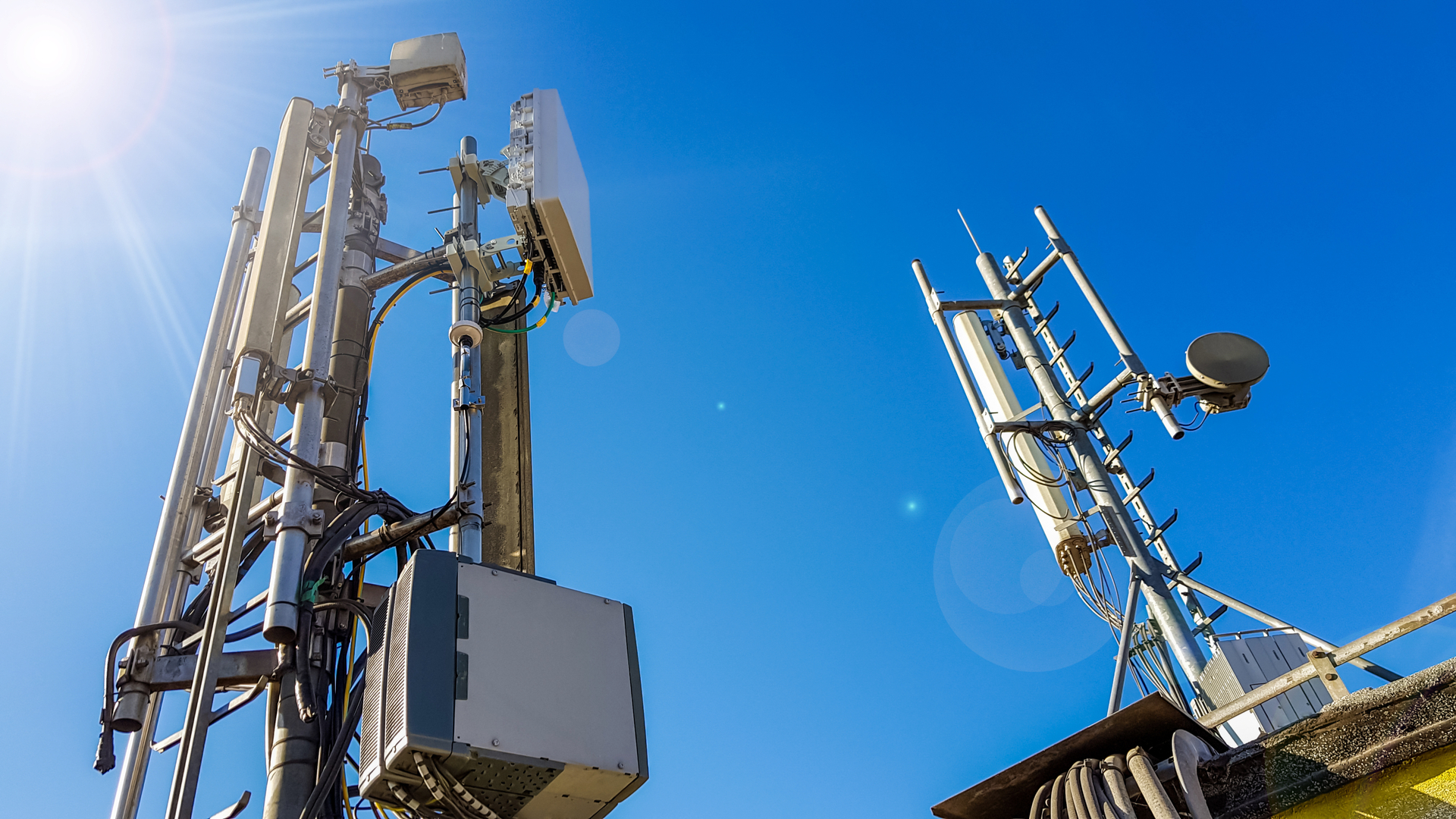Lord Carter begins universal broadband negotiations
An ongoing row over sharing broadband spectrum has spurred the communications minister to call the mobile operators into negotiations.


Communications minister Lord Carter has today summoned all five UK mobile operators into negotiations to resolve a spectrum row that could threaten his universal broadband pledge.
The former Ofcom chief executive was quick to set the pace towards achieving universal broadband coverage by 2010, at speeds of two megabytes per second (Mbps), with the release of his interim Digital Britain report last month.
At the time, Carter suggested that the growing accessibility and popularity of mobile broadband technologies would be key to achieving this goal.
But the UK mobile operators Vodafone and O2 (formerly Cellnet), who own the rights to run 2G GSM services over the older, 900 megahertz (MHz) spectrum, have been reluctant to share it with rivals for this greater good.
Now Carter has called Vodafone and O2 into negotiations with the other three UK operators, to work out how rivals T-Mobile, Orange and 3 can buy some of the 900 MHz spectrum to offer modern, 3G and high-speed packet access (HSPA) mobile broadband services in remote areas.
A roundtable meeting involving the five operators and Kip Meek, another former Ofcom official who now heads up the government's independent advisory panel, the Broadband Stakeholder Group, is scheduled to begin tomorrow to thrash out a compromise.
But the chances of any agreement being reached hangs in the balance, if Vodafone and O2's initial reactions to the plan when it was first mooted by Ofcom over a year ago do not change. The two operators launched a legal challenge against the plans.
Get the ITPro daily newsletter
Sign up today and you will receive a free copy of our Future Focus 2025 report - the leading guidance on AI, cybersecurity and other IT challenges as per 700+ senior executives
Nevertheless, Lord Carter's recent report said that sharing the low-frequency spectrum would support the government's universal broadband pledge by offering an ideal solution for those currently without wired broadband and in remote areas.
As such, Carter said in his interim report that the operators must reach a compromise by April or risk having the government impose one on them. Industry experts have suggested that O2 and Vodafone may be willing to exchange some of their 900MHz spectrum for 1800 MHz spectrum with rivals Orange and T-Mobile.
None of the operators could be reached for comment at the time of writing.
A 25-year veteran enterprise technology expert, Miya Knights applies her deep understanding of technology gained through her journalism career to both her role as a consultant and as director at Retail Technology Magazine, which she helped shape over the past 17 years. Miya was educated at Oxford University, earning a master’s degree in English.
Her role as a journalist has seen her write for many of the leading technology publishers in the UK such as ITPro, TechWeekEurope, CIO UK, Computer Weekly, and also a number of national newspapers including The Times, Independent, and Financial Times.
-
 Westcon-Comstor and Vectra AI launch brace of new channel initiatives
Westcon-Comstor and Vectra AI launch brace of new channel initiativesNews Westcon-Comstor and Vectra AI have announced the launch of two new channel growth initiatives focused on the managed security service provider (MSSP) space and AWS Marketplace.
By Daniel Todd Published
-
 Third time lucky? Microsoft finally begins roll-out of controversial Recall feature
Third time lucky? Microsoft finally begins roll-out of controversial Recall featureNews The Windows Recall feature has been plagued by setbacks and backlash from security professionals
By Emma Woollacott Published
-
 Ofcom net neutrality update dismisses calls for big tech contributions
Ofcom net neutrality update dismisses calls for big tech contributionsNews Ofcom’s net neutrality stance has been criticized by some industry stakeholders
By Emma Woollacott Published
-
 UK 5G spectrum auction will finally go ahead this week
UK 5G spectrum auction will finally go ahead this weekNews The much awaited auction will involve companies bidding for frequency in two bands
By Zach Marzouk Published
-
 Almost one million Brits still suffer with appalling broadband speeds, Ofcom report finds
Almost one million Brits still suffer with appalling broadband speeds, Ofcom report findsNews A new Ofcom report reveals a massive 925,000 people are still on downloads speeds of less than 10Mbps
By Alex Lee Published
-
 ISPs now have 30 days to fix net speeds or face null contracts
ISPs now have 30 days to fix net speeds or face null contractsNews Ofcom confirms customers will soon be able to walk away if their service dips
By Dale Walker Published
-
 More than a million UK properties don't have access to 'decent' broadband speeds
More than a million UK properties don't have access to 'decent' broadband speedsNews Ofcom's Connected Nations report finds broadband is still lacking across 4% of the UK
By Roland Moore-Colyer Published
-
 BT offers to invest up to £600m to provide universal high-speed broadband
BT offers to invest up to £600m to provide universal high-speed broadbandNews The company's offer would replace new regulation proposed by the government
By Zach Marzouk Published
-
 Ofcom caps EE and BT's spectrum bidding
Ofcom caps EE and BT's spectrum biddingNews Regulator will limit how much spectrum a single mobile operator can own
By Nicole Kobie Published
-
 Ofcom caps BT's Openreach prices
Ofcom caps BT's Openreach pricesNews Regulator limits the amount that rivals can be charged for leasing the company's superfast broadband
By Adam Shepherd Published